El Doctor Francia

Dr. José Gaspar Rodríguez de Francia y Velasco (January 6, 1766 – September 20, 1840) was the first leader of Paraguay following its independence from Spain. He ran the country with no outside interference and little outside influence from 1814 to 1840.
Born in Yaguarón, he became a doctor of theology and trained for the Catholic priesthood but never entered it. When Paraguay's independence was declared in 1811, he was appointed secretary to the national junta or congress. He was one of the few men in the country with any significant education, and soon became the country's real leader.
In 1814, a congress named him Consul of Paraguay, with absolute powers for three years. At the end of that term, he sought and received absolute control over the country for life. For the next 26 years, he ran the country with the aid of only three other people. He aimed to found a society on the principles of Rousseau's Social Contract and was also inspired by Robespierre and Napoleon. To create such a personal utopia he imposed a ruthless isolation upon Paraguay, interdicting all external trade, while at the same time he fostered national industries. He became known as a caudillo who ruled through ruthless suppression and random terror with increasing signs of madness, and was known as "El Supremo".
He outlawed all opposition and abolished higher education (while expanding the school system), newspapers and the postal service. He abolished the Inquisition and established a secret police force. He had abolished higher education because he saw the need to spend more money in the military in order to defend Paraguayan independence from those that did not recognize it such as Argentina.
..........
Francia later seized the possessions of the Roman Catholic Church, nationalizing the land as communal farms which proved successful. He appointed himself head of the Paraguayan church, for which the Pope excommunicated him.
He made marriage subject to high taxation and restrictions, insisting he personally conduct all weddings. To reduce the influence of the Spanish gentry, he forbade them to marry among themselves.
Quotes:
"The best saints to guard the borders with are cannons."
Note: When the commander of a new fortress asked for permission to put it under the patronage of a saint.
* "Para guardar las fronteras, los mejores santos son los cañones."
o Nota: Cuando el comandante de una nueva fortaleza le pidió permiso para ponerla bajo la advocación de un santo.
"If someone walking on the street stops and looks at my house's facade, fire on him. And you if you miss shoot again and if you still miss your mark, I'm sure my pistol will not err."
Note: To a centry that let a woman peer through window at the furniture inside one of the rooms of the Dictator's Palace.
* "Si alguno de los que pasen por la calle se detuviere, fijándose en la fachada de mi casa, haz fuego sobre él; si lo yerras, haz otro tiro, y si todavía lo yerras, ten por seguro que mi pistola no ha de errarte."
o Nota: A un centinela que había tolerado a una mujer que mirase por una ventana los muebles de una de las habitaciones de Palacio.
"If the pope were to come to Paraguay, maybe I'll name him my chaplain but he's better off in Rome and me in Asuncion."
* "Si el Papa viniera al Paraguay, puede ser que le nombrara mi capellán, pero bien se está él en Roma y yo en La Asunción."
(Wikipedia)

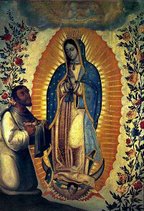
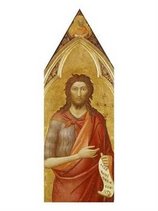


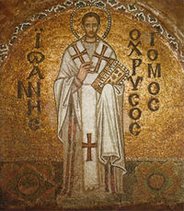
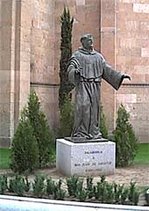

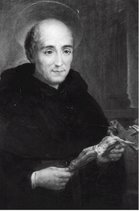
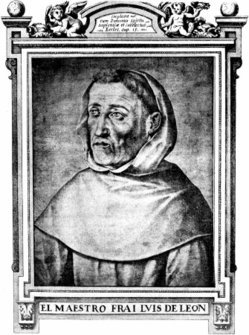
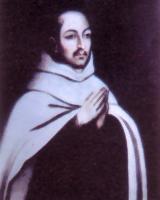


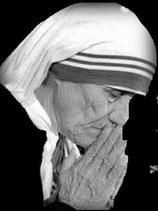
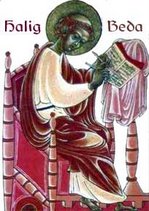
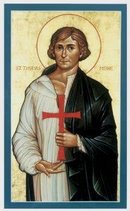
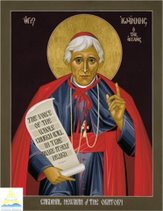




No comments:
Post a Comment